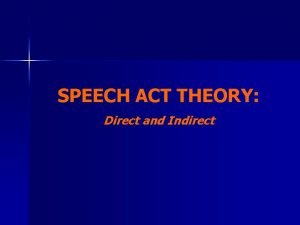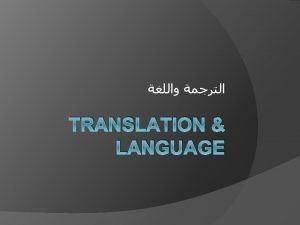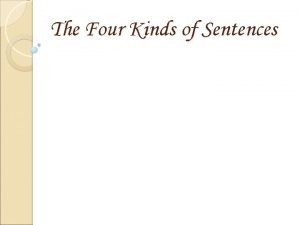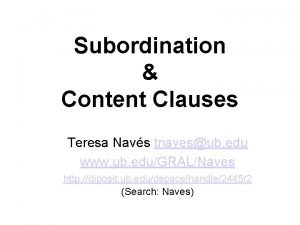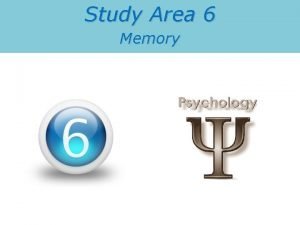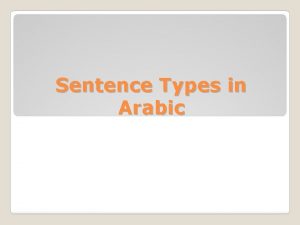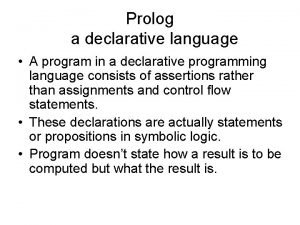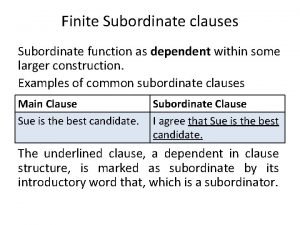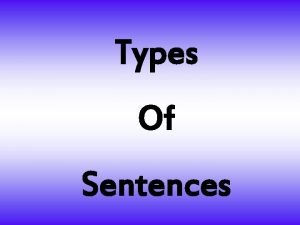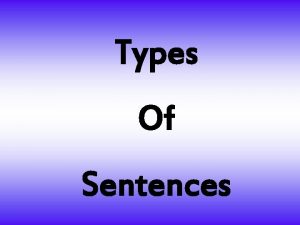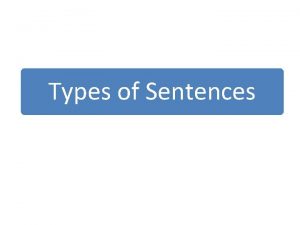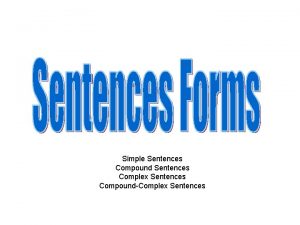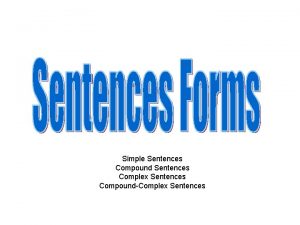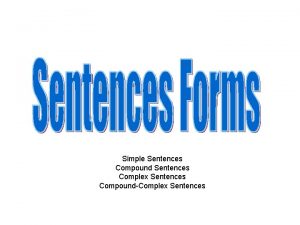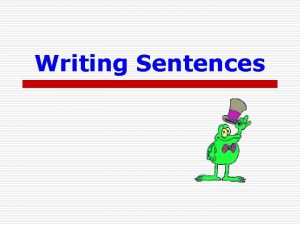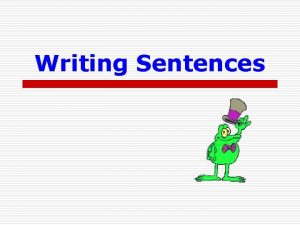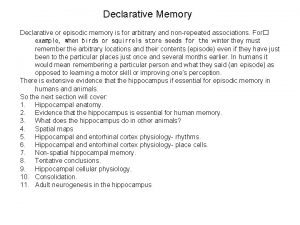Types of Sentences Types of Sentences Declarative a













- Slides: 13

Types of Sentences

Types of Sentences • Declarative – a sentence that makes a statement or gives information and ends with a period. Examples: The New York Yankees is my favorite team. George Washington was the first president of the United States of America.

Types of Sentences • Imperative – a sentence that gives a command or makes a request and ends with a period. Examples Sit down and get started on the warm-up. Please go to the dance with me.

Types of Sentences • Interrogative – a sentence that asks a question and ends with a question mark. Examples: What time does the movie start? Where do we sign up for intramural basketball?

Types of Sentences • Exclamatory – a sentence that expresses strong emotion or shows excitement and ends with a exclamation point. Examples: Watch out for the falling rocks! Hurry, or we will be late! Help, there is a snake in my backpack!

Main Clauses Subordinate Clauses Sentence Structure Simple Sentence Complex Sentence Compound-complex Sentence Fragment Run-on Sentence

Sentence Structure Clauses - is a group of words that has a subject and a predicate and is used as a sentence or part of a sentence. Main Clause – has a subject and a predicate and can stand alone as a sentence. Subordinate Clause – has a subject and a predicate, but it cannot stand alone as a sentence. Main clause Subordinate clause The book bored me until I read chapter five.

Simple – has only one main clause and no subordinate clause. The stars filled the sky. Compound – has two or more main clauses. The plane landed, and the passengers left. Complex – has one main clause and one or more subordinate clauses. Although the children found the letter, they couldn’t read it. Compound-complex – has more than one main clause and at least one subordinate clause. The earth is bountiful; we may destroy it if we abuse it.

Sentence fragment – is a group of words that is only part of a sentence and does not express a complete thought. A sentence must have a subject and a predicate. When the subject or predicate is missing the result is a sentence fragment. Examples: The great Thomas Jefferson wrote the Declaration of Independence. Our school band performed at Disney World.

Run-on sentence – joins two or more sentences that should be written separately. Jefferson built his home on a hilltop he called his home Monticello. How to correct a run-on sentence Make two simple sentences Jefferson built his home on a hilltop. He called it Monticello. Make a compound sentence by using a comma and a conjunction Jefferson built his home on a hilltop, and he called it Monticello. Make a compound sentence by using a semicolon. Jefferson built his home on a hilltop; he called it Monticello.

Review of Terms Types of Sentences Declarative – a sentence that makes a statement or gives information and ends with a period. Imperative – a sentence that gives a command or makes a request and ends with a period. Interrogative – a sentence that asks a question and ends with a question mark. Exclamatory – a sentence that expresses strong emotion or shows excitement and ends with a exclamation point.

Review of Terms Clauses is a group of words that has a subject and a predicate and is used as a sentence or part of a sentence. Main Clause – has a subject and a predicate and can stand alone as a sentence. Subordinate Clause – has a subject and a predicate, but it cannot stand alone as a sentence.

Review of Terms Sentence Structure Simple – has only one main clause and no subordinate clause. Compound – has two or more main clauses. Complex – has one main clause and one or more subordinate clauses. Compound-complex – has more than one main clause and at least one subordinate clause. Sentence fragment – is a group of words that is only part of a sentence and does not express a complete thought. Run-on sentence – joins two or more sentences that should be written separately.
 Declarative interrogative imperative exclamatory examples
Declarative interrogative imperative exclamatory examples Kind of sentence
Kind of sentence Imperative exclamatory declarative interrogative
Imperative exclamatory declarative interrogative Negative sentences structure
Negative sentences structure Nakuma matata
Nakuma matata Exclamatory sentence
Exclamatory sentence Declarative content clause
Declarative content clause Implicit memory
Implicit memory Types of sentences in arabic
Types of sentences in arabic Prolog declarative
Prolog declarative Recursive pattern
Recursive pattern Finite dependent clause
Finite dependent clause Computable predicates in ai
Computable predicates in ai Declarative design pattern
Declarative design pattern

